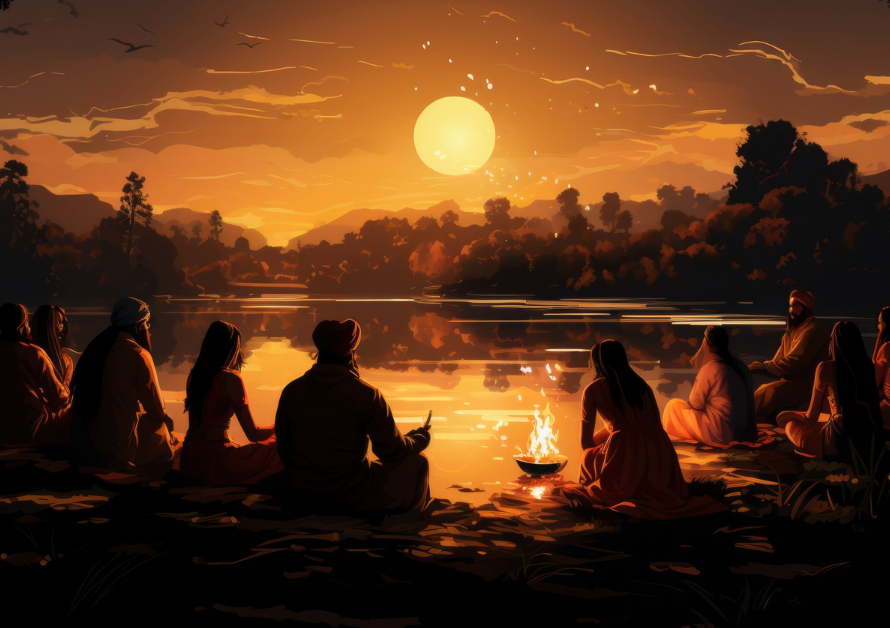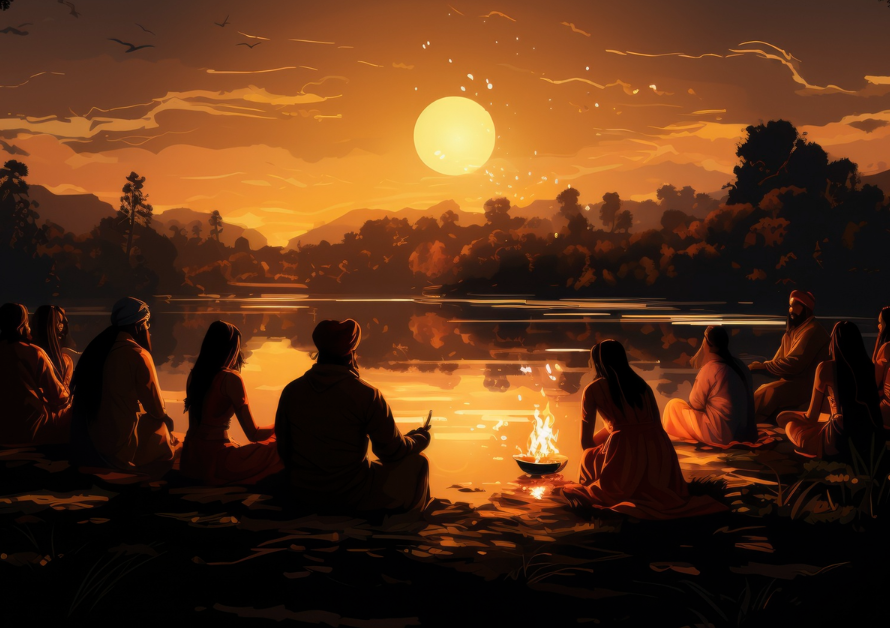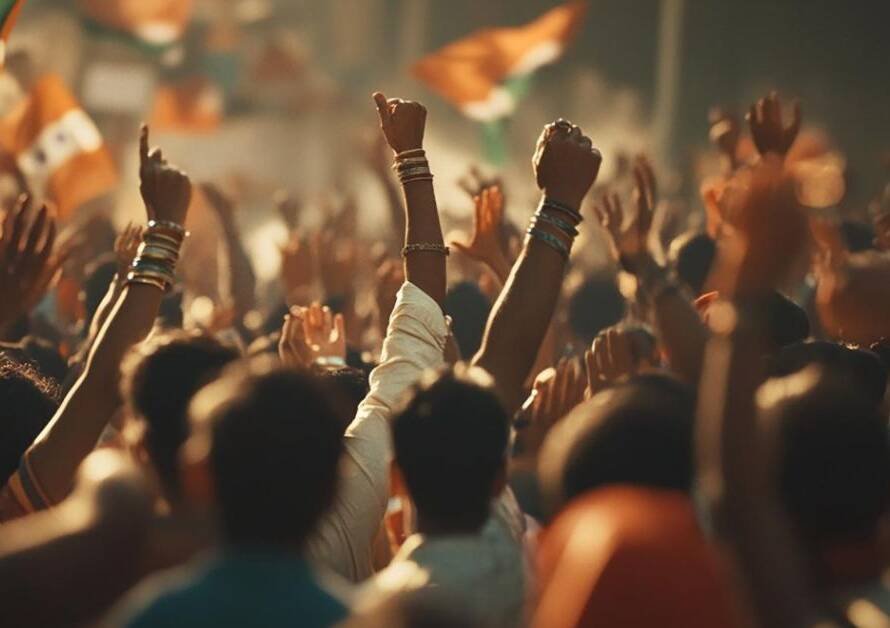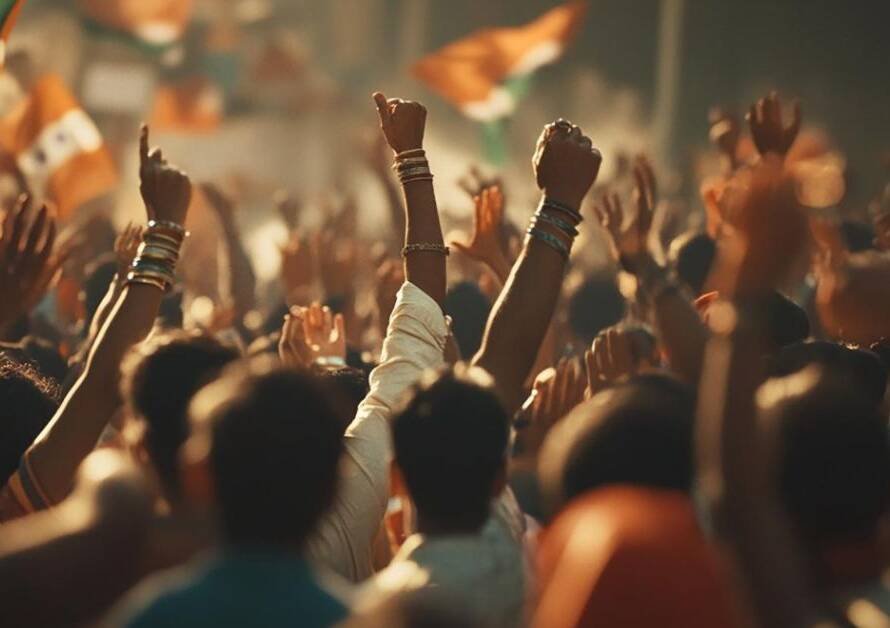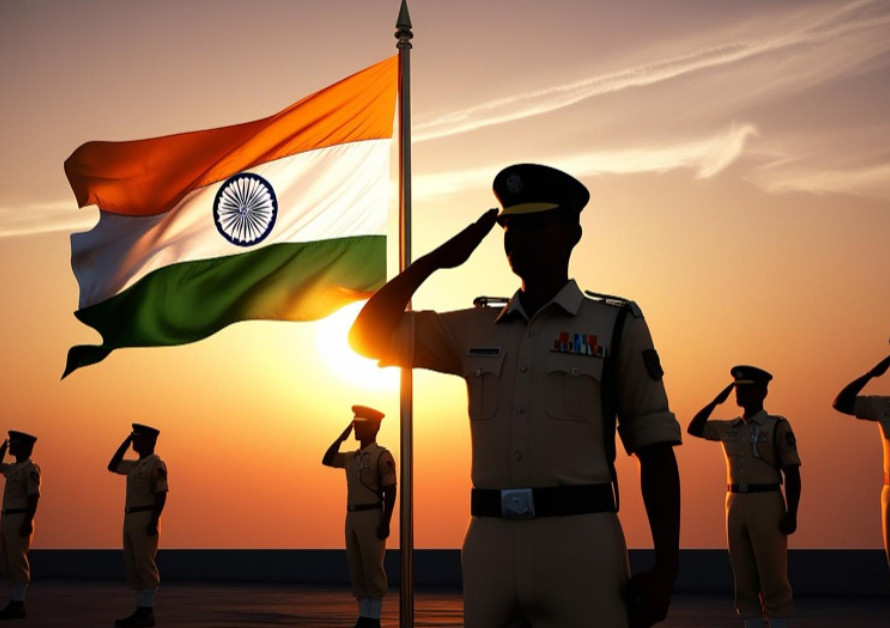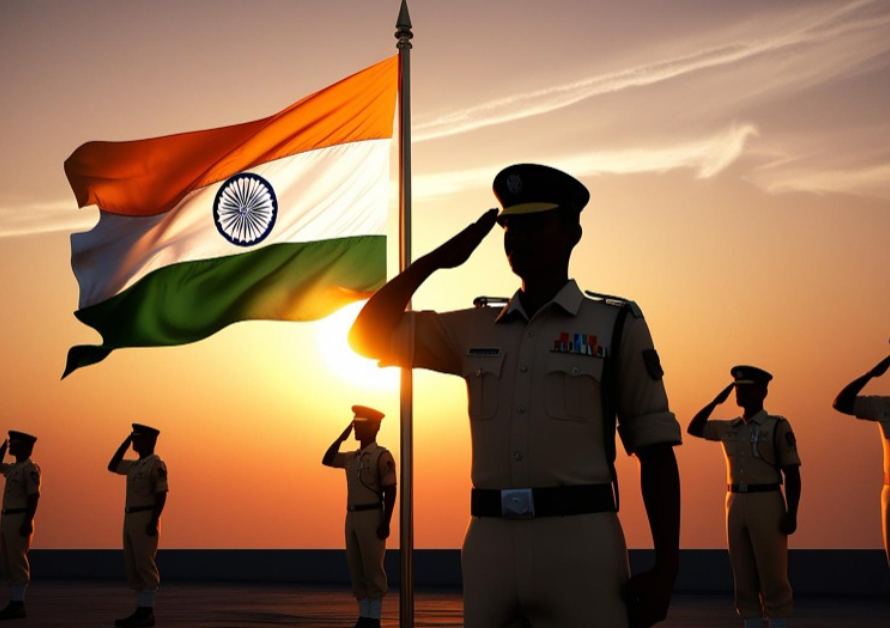This message is a response to a reader’s comment on a quote by Swami Vivekananda. It reflects upon the critical challenges that Hindus face today, emphasizing the need for vigilance and action to safeguard their future.
Many individuals in the younger generation (20-40 years) proudly consider themselves secular, avoiding distinctions based on religion, caste, or creed. While this perspective aligns with universal humanity — the belief that we all are children of one supreme authority, whether we call it God, Allah, or Ishwar — blind adherence to secularism without understanding the context can be detrimental.
The Illusion of Blind Secularism
In the current religious, social, and political scenario, it is vital to take a rational and situationally appropriate stand. Secularism is essential, but it should not come at the cost of ignoring ground realities and long-term threats to our culture and future.
Christianity: Concern over Conversion Practices
While Christianity as a religion promotes moral, human, and social values, certain practices raise concerns. For example, organized efforts to convert Hindus using financial inducements or coercion exploit the vulnerabilities of marginalized communities. These actions undermine the harmony and trust between communities
That said, most Christians in India live peacefully, practice their faith, and contribute positively to society. It is essential to distinguish between such individuals and the conversion machinery operating under certain influences.
Islam: Strengths and Challenges
What Hindus Can Learn from Muslims
Muslims demonstrate commendable unity and discipline in their religious practices.
Faith and Regular Worship:
Muslims diligently follow their faith, attending mosques every Friday, praying regularly, and instilling religious values in their children.
Similarly, Christians gather every Sunday in churches to pray and strengthen their community bonds.
Hindus, by contrast, often lack such regularity in their spiritual practices and fail to transmit religious and cultural values to the next generation.
Self-Reliance and Economic Discipline:
Many Muslims are self-employed or run small businesses, enabling them to balance work and religious practices.
Hindus, however, often seek government jobs or corporate employment, leaving large sections unemployed or underemployed. Hindus must learn to embrace entrepreneurship and self-employment as a means to economic empowerment.
Critical Challenges with Islam
Polygamy and Population Growth:
The practice of polygamy and unchecked population growth among certain Muslim communities leads to socio-economic strain and creates imbalances in demographic representation.
In states like Kerala and West Bengal, Muslim vote shares range between 40-70%, significantly influencing political outcomes.
Radical Teachings and Extremism:
Certain interpretations of the Quran label non-Muslims as “Kafirs,” advocating their conversion or elimination. Such extremist ideologies are inhuman and incompatible with a pluralistic society.
Impact on Electoral Dynamics:
The increasing Muslim population and unified voting patterns result in disproportionate political representation.
Opposition parties, driven by vote-bank politics, often exploit these dynamics by appeasing Muslim communities at the expense of Hindu interests.
The Political Threat to Hindu Unity
The opposition’s strategy to divide Hindus along caste, linguistic, and regional lines has weakened Hindu political power. Despite being a majority, Hindus often fail to consolidate their votes, leading to electoral losses. In contrast, Muslim and Christian communities exhibit remarkable unity in voting, amplifying their influence in democratic processes.
If these trends continue, projections indicate that within 20-30 years, Muslims could constitute over 40% of the voter base, significantly altering India’s socio-political landscape. If unchecked, this could lead to a scenario where India transitions into an Islamic state, with consequences mirroring the plight of Hindus in Pakistan and Bangladesh.
The Call to Action for Hindus
Reclaim Religious Discipline:
Hindus must prioritize regular worship, community engagement, and cultural education for their children.
Temples should serve as community hubs for spiritual, social, and cultural activities, fostering unity and solidarity.
Embrace Economic Empowerment:
Hindus must focus on skill development, entrepreneurship, and self-employment to reduce dependence on government jobs and create self-sustaining communities.
Political Awareness and Unity:
Hindus must recognize the importance of political unity to protect their interests and ensure fair representation.
Support for nationalist and pro-Hindu leaders who prioritize India’s cultural and religious heritage is crucial.
Counter Conversion Tactics:
Awareness campaigns highlighting the impact of religious conversions should be organized, ensuring vulnerable communities receive support and protection.
The Consequences of Complacency
India is the only Hindu-majority country in the world. If Hindus lose their majority status or political power, there will be no safe haven left. The future generations will face the same challenges Hindus in Pakistan and Bangladesh encountered — forced conversions, persecution, or displacement.
Hindus must awaken to these dangers and act decisively. The time to protect their religion, culture, and nation is now. Ignoring these threats today will jeopardize the legacy and future of the next generation.
“Arise, Awake, and Stop Not Till the Goal is Reached!” — Swami Vivekananda
It’s time to heed these words and secure the destiny of Bharat and Hindu civilization. Jai Hind!


